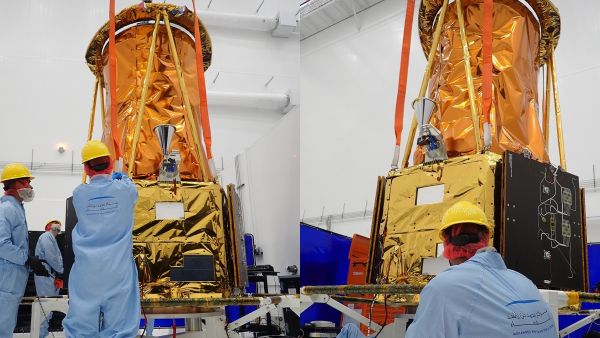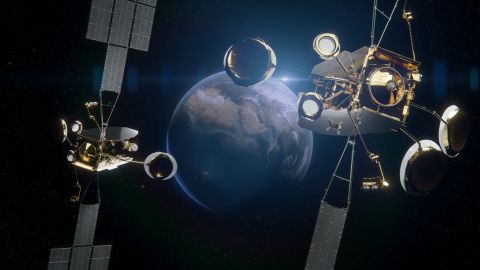ALBAWABA – Mohammed bin Rashid Space Centre (MBRSC) announced the launch of MBZ-SAT satellite, the most advanced commercial satellite in the region in the field of high-resolution satellite imagery, in January 2025 with the help of SpaceX.
UAE launches MBZ-SAT satellite
According to senior officials at Mohammed bin Rashid Space Centre (MBRSC), the MBZ-SAT satellite will be launched in January 2025.
MBZ-SAT satellite is named after His Highness Sheikh Mohammed bin Zayed Al Nahyan, President of the United Arab Emirates. Notably, the satellite weighs approximately 700 kg and was originally scheduled for launch in October 2024; however, the launch was delayed due to technical issues.
The satellite will be launched through SpaceX’s Falcon 9 rocket from the Vandenberg Space Force Base in California, US.
Salem Humaid AlMarri, Director General, MBRSC said, “As we approach closer to the launch of MBZ-SAT, this project reflects the UAE’s unwavering vision for progress and innovation under our wise leadership. MBZ-SAT represents more than a technological achievement; it is a testament to our nation’s determination to lead in space science and contribute meaningfully to the global space community. Through every advancement, we are empowering future generations to dream bigger and reach farther in the pursuit of excellence while harnessing the full potential of space science to benefit the nation, region, and support sustainable development on Earth.”
The satellite will be launched through SpaceX, American space technology company, founded by Elon Musk.
It is worth noting that MBZ-SAT will provide unprecedented surveillance capabilities and it is three times more powerful than KhalifaSat, the UAE’s own satellite that has been operational since 2018.
The satellite relies on advanced artificial intelligence technology for collecting, processing, and analyzing data. It will significantly enhance information acquisition and improve space imagery.
MBZ-SAT will monitor environmental conditions, assess water quality, support agricultural development, provide mapping and analysis, and aid in disaster management efforts, according to senior officials at MBRSC.











